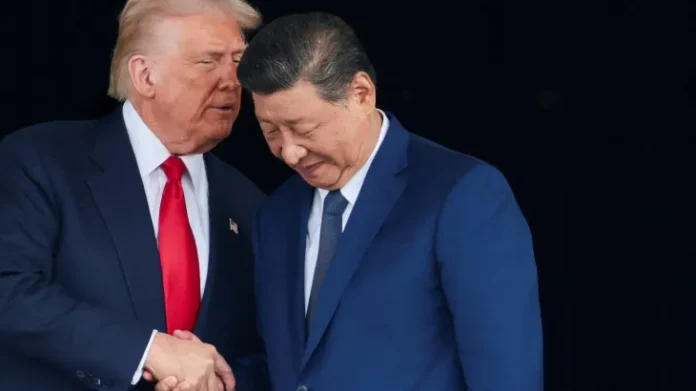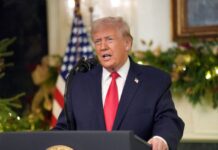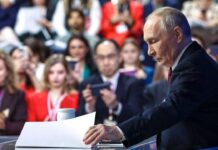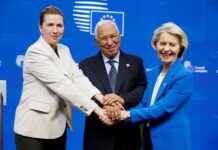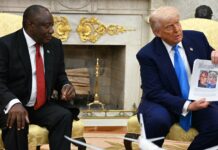Written by Lisa Murimi
U.S. President Donald Trump and Chinese President Xi Jinping reached a partial trade agreement on Thursday, with Washington agreeing to reduce tariffs on Chinese imports in exchange for Beijing’s efforts to curb the fentanyl trade and maintain rare earth exports.
The meeting, held in the South Korean port city of Busan on the sidelines of the Asia-Pacific Economic Cooperation (APEC) summit, marked the first face-to-face encounter between the two leaders since 2019.
The high-stakes talks, lasting nearly two hours, concluded with Trump calling the meeting “amazing” and rating it a “12 out of 10.”
Under the deal, U.S. tariffs on Chinese goods will drop from 57% to 47%, including a halving of levies on fentanyl precursor chemicals to 10%.
Trump said the move followed Xi’s commitment to intensify efforts to stop the flow of fentanyl into the United States, where the synthetic opioid has become the leading cause of overdose deaths.
In return, China agreed to suspend for one year its newly announced restrictions on rare earth exports — vital materials used in electronics, defense, and renewable energy industries.
Beijing’s Commerce Ministry also confirmed plans to expand agricultural imports from the U.S. and revisit concerns surrounding the social media platform TikTok, which Trump has been pushing to bring under American ownership.
Markets reacted cautiously to the announcement. Asian stocks and European futures fluctuated, while the Shanghai Composite Index slipped from a decade high and U.S. soybean futures weakened.
“Investors appear skeptical that this agreement signals a lasting resolution,” said Besa Deda, chief economist at William Buck Advisory in Sydney.
Both leaders emphasized the importance of managing their differences constructively. Xi remarked that “frictions now and then are normal,” adding that China’s development goals do not conflict with Trump’s vision to “Make America Great Again.”
Trump also revealed plans for future engagement, announcing he would visit China in April 2026, followed by Xi’s visit to the United States later in the year.
Despite the apparent thaw, key disputes remain unresolved. Trump confirmed that issues surrounding Taiwan and the U.S. semiconductor giant Nvidia’s chip exports to China were not discussed.
Analysts warned that the deal, while easing tensions, amounts to a “tactical truce” rather than a fundamental reset in U.S.-China relations.









